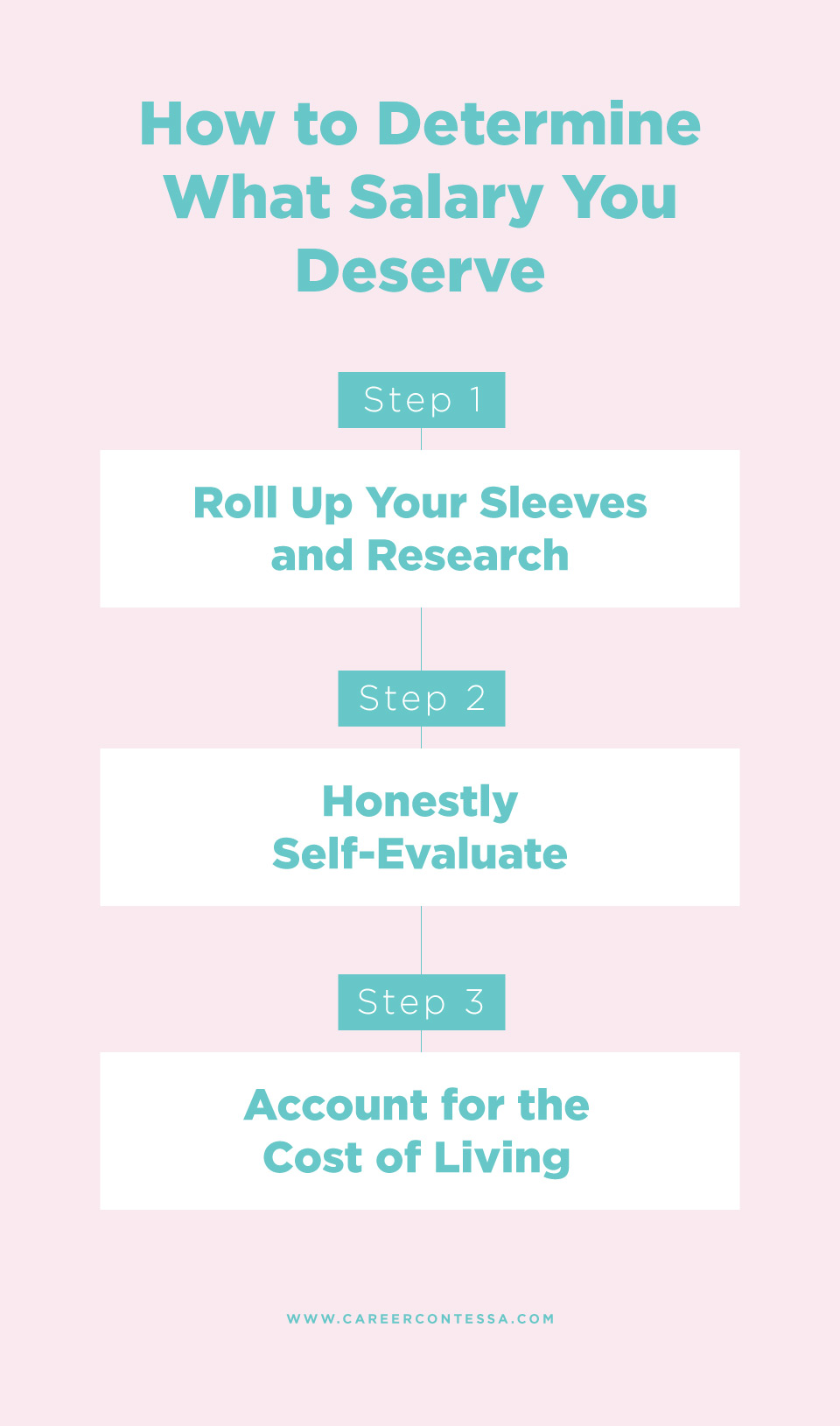At some point in your career, the question of salary requirements is bound to come up. While you should always try to avoid naming a number first, the fact of the matter is: at some point, you will have to provide an answer.
But determining what that number should be is not always an easy task. Like most women, you were probably taught to avoid discussing money with family and friends, let alone potential employers.
The key to alleviating tension (and getting what you deserve) is to prepare your response and tactics in advance. Here we've broken it out into three steps to help you come to an educated conclusion of exactly what you're worth.
Step 1: Roll Up Your Sleeves And Research
The best place to begin is by thinking big picture. Before you consider your own merits, research the "going rate" for the positions you’re aiming for.
We also have The Salary Project™, which is our user-generated report of thousands of incomes from women in various fields and regions. Be sure to check with professional associations in your industry, as they also often produce reports with average salary information.
These reports and salary comparisons provide great insight, but it's important to keep in mind that everyone's situation is different. The main takeaway from this online research should be an understanding of a typical salary range for someone in your shoes. But here’s where you’ll need to pause and consider your own personal experience and expertise. Take the numbers you find as a guide and tentative range—now you can hone in.
Step 2: Honestly Self-Evaluate
Based on the research you've conducted, you should have a solid sense of a typical salary in your field and for your desired position. The next piece of the puzzle is to reflect on your own background. Do it honestly—don’t exaggerate, but don’t downplay your abilities either. Consider your:
- Level of education
- Additional certifications, training, or courses you've completed
- Years and level of experience
- Unique knowledge, skills, and abilities that will benefit the organization
- Responsibilities and accomplishments in other roles
Perhaps you've discovered that the typical range for someone at your level and in your industry is $40,000-50,000. But, those who are paid closer to $50,000 may have additional education like a graduate degree, a specific certification, or more years of experience than those who are paid closer to $40,000. Where do you best fit on the sliding scale?
Not only will evaluating your own experience and expertise help you determine what salary you should ask for, but it’s also useful for when you’re asked to state your case for why you deserve the amount you’re asking for.
If self-reflection makes you uncertain, talking with a Career Contessa Coach can greatly help you here, as we can help you reflect and evaluate yourself from an unbiased perspective. We can also help you outline talking points to use during the negotiation process.
Step 3: Account For The Cost of Living
The last thing to consider when determining how much you should be paid is your location, as the cost of living comes into play. For example, those who live in large metro areas like NYC, San Francisco, or LA will likely demand a higher pay scale than those in smaller, less expensive regions. To help you calculate the difference, use a cost of living calculator. The Bureau of Labor Statistics also provides wage data by state and metro area if you're looking for more in-depth information on the subject.
It also doesn’t hurt to sit down and calculate your expenses as well to determine what you need to live comfortably. In some sprawling cities, like Los Angeles, job location affects your commute, which will affect your monthly bills significantly.
While determining what salary you deserve is often an uncomfortable process, you're likely to feel much more comfortable going into a job search or salary negotiation process having done your homework. For one-on-one advice about determining or negotiating salary, book a session with a Career Contessa Coach.












